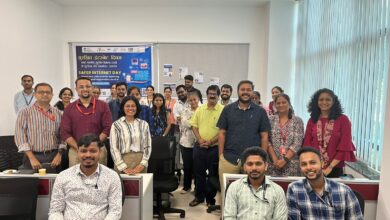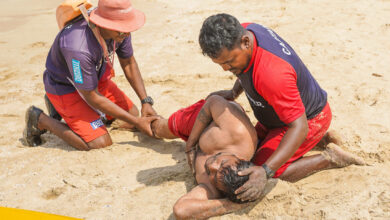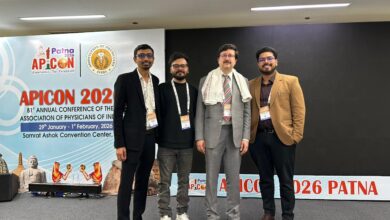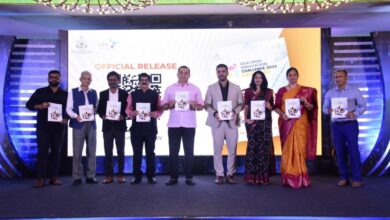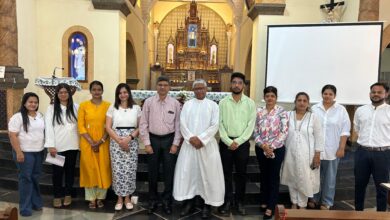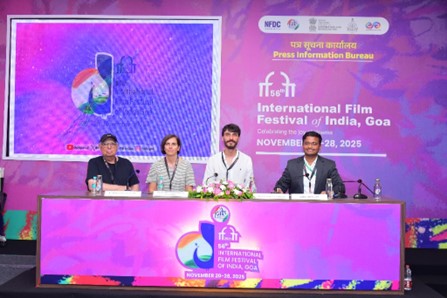
Stories of Memory, Resilience, and Survival Take Center Stage at IFFI
Remembering the Disappeared: Personal Pain Becomes Political in ‘Forensics’
Real Stories of Mozambique Come Alive in ‘Ku Handza’
26 November 2025: At IFFI today, audiences were treated to a rare glimpse into the lives of people often left on the margins, through the cinematic lenses of Colombia and Mozambique. The press conference with the makers of ‘Forensics’ and ‘Ku Handza’ offered a masterclass in storytelling that is as much about memory and resilience as it is about art.
Federico Atehortúa Arteaga’s ‘Forensics’ is a bold, experimental film that threads three narratives together: a female director reconstructing the life of a deceased transgender woman, filmmaker’s family grappling with a missing relative, and the testimony of forensic pathologist Karen Quintero. The result is a film where the personal becomes political, exploring Colombia’s turbulent past and the scars left by disappearances.
Federico spoke passionately about the real-life connections that drive his work. “This is the story of many in Columbia. Everyone in the country knows someone who has gone missing. After the screenings of this movie, people would raise their hands saying, ‘My uncle, my brother…’ Some even cried,” he recalled. “It’s humbling to see a story reach people in such a deep way. Memory is essential, it teaches younger generations about the human cost of conflict.” For Federico, the research done for the film was as challenging as it was vital, and the film becomes a platform for those searching for the disappeared to find a sense of solidarity.
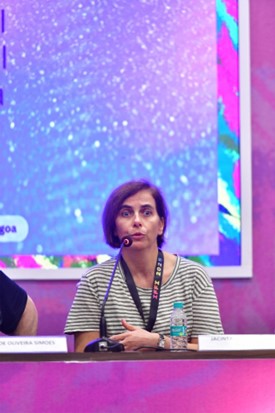
Across the globe, ‘Ku Handza,’ produced by Jacinta Maria De Barros Da Mota Pinto and Rui César De Oliveira Simões, brought a different flavor of reality. Set in Mozambique, the film follows ordinary people navigating extraordinary circumstances: Benjamin scrambling to fund his son’s birthday, Filimone balancing family and wartime duties, and Eulália returning to work at a landfill just days after giving birth. Jacinta explained that the film’s authenticity comes from its people, as they are not actors but real lives woven into a cinematic narrative. “Mozambique became a second home for the director. We wanted to portray these lives honestly, as if we were one among them,” she said.
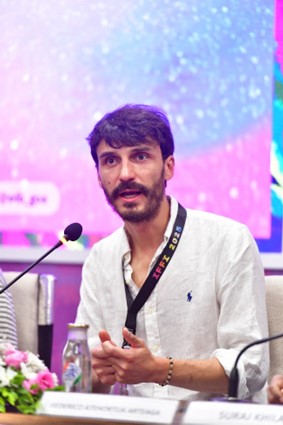
Both films, though rooted in distinct realities, converge in their ability to give voice to the unheard. ‘Forensics’ unpacks the grief and political turmoil of Colombia, while ‘Ku Handza’ captures the resilience and everyday heroism of Mozambican life. Together, they remind audiences that cinema has the power not just to entertain, but to document, connect, and illuminate the human experience across borders.
By the end of the session, it was clear: these films do more than tell stories. They create bridges between worlds, offering audiences a chance to witness struggles, survival, and hope in places they may never visit, yet can deeply feel.



